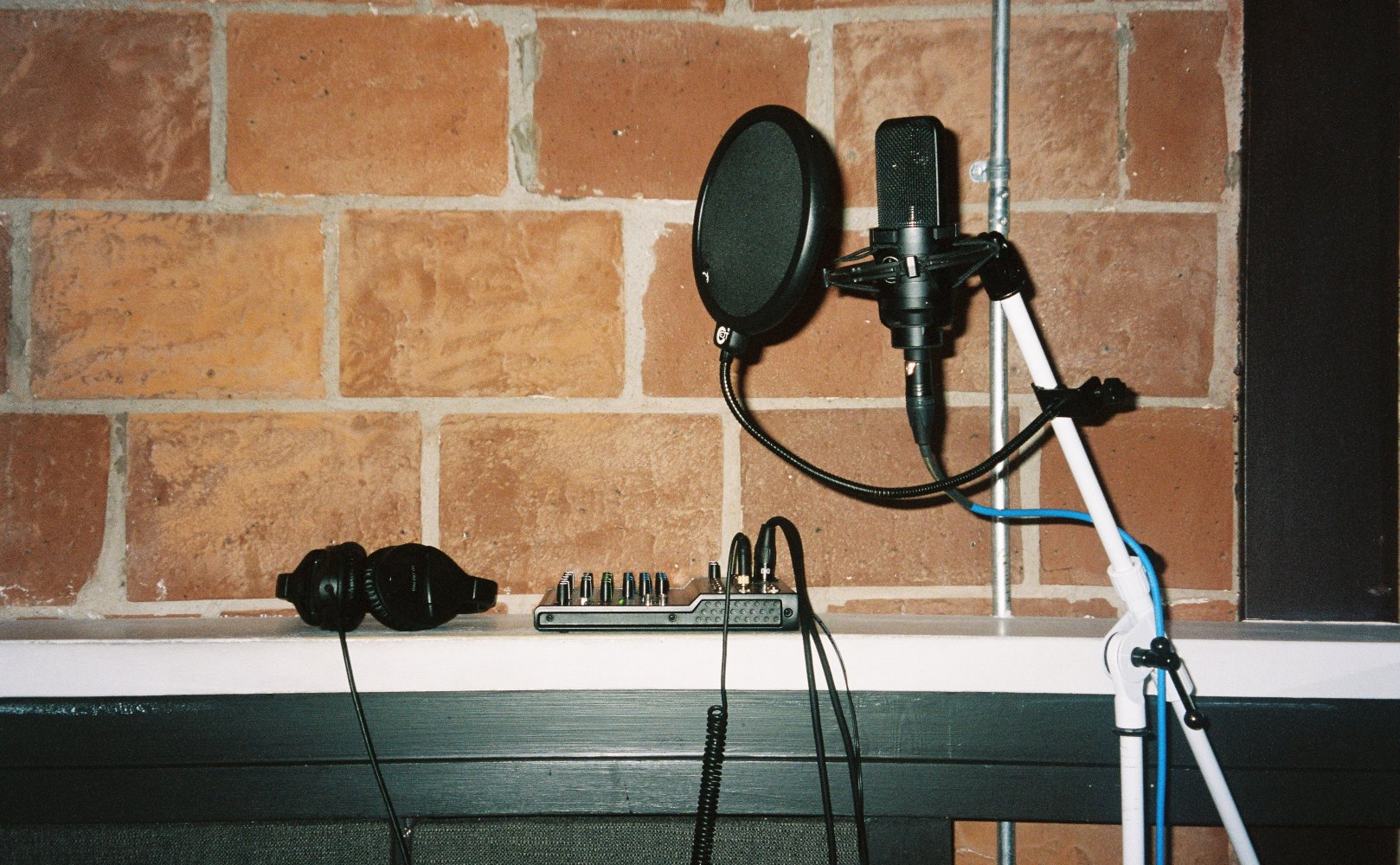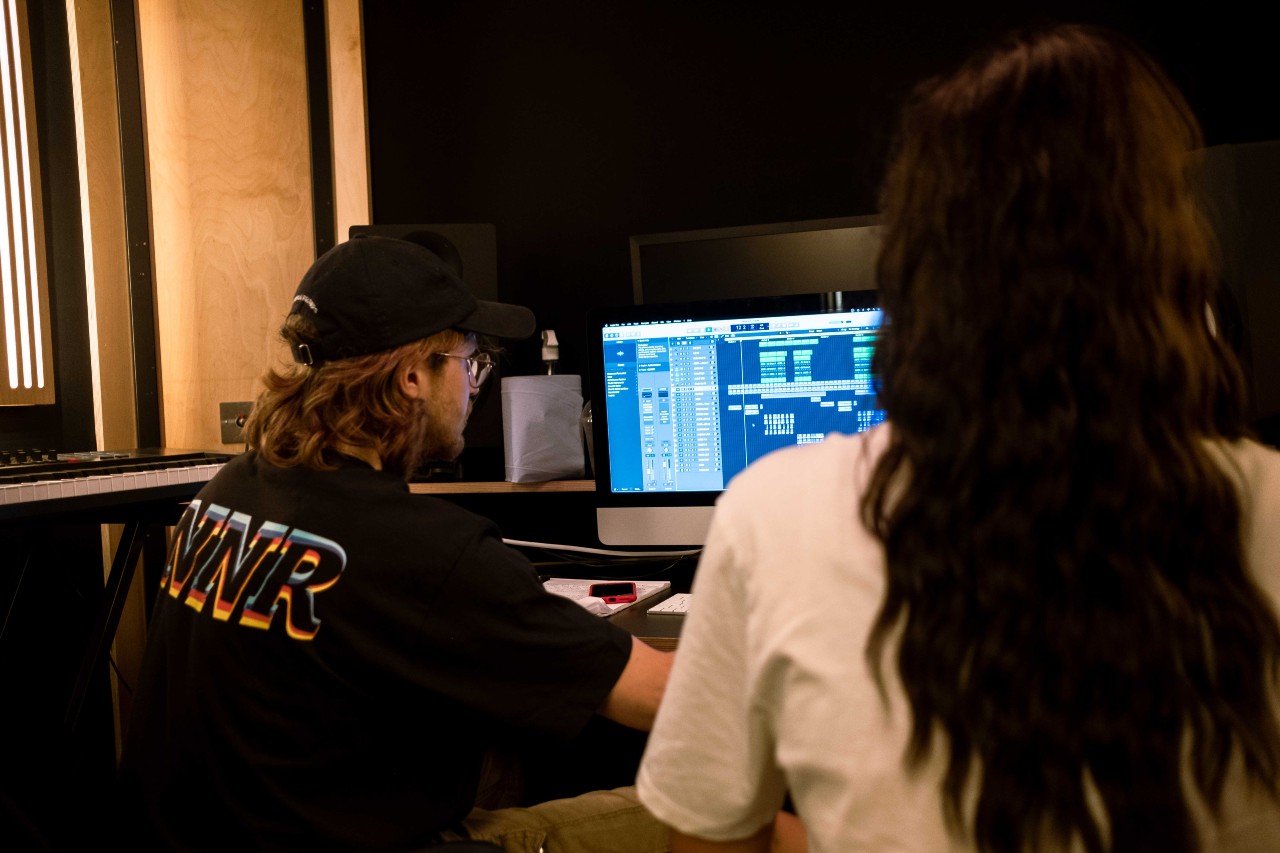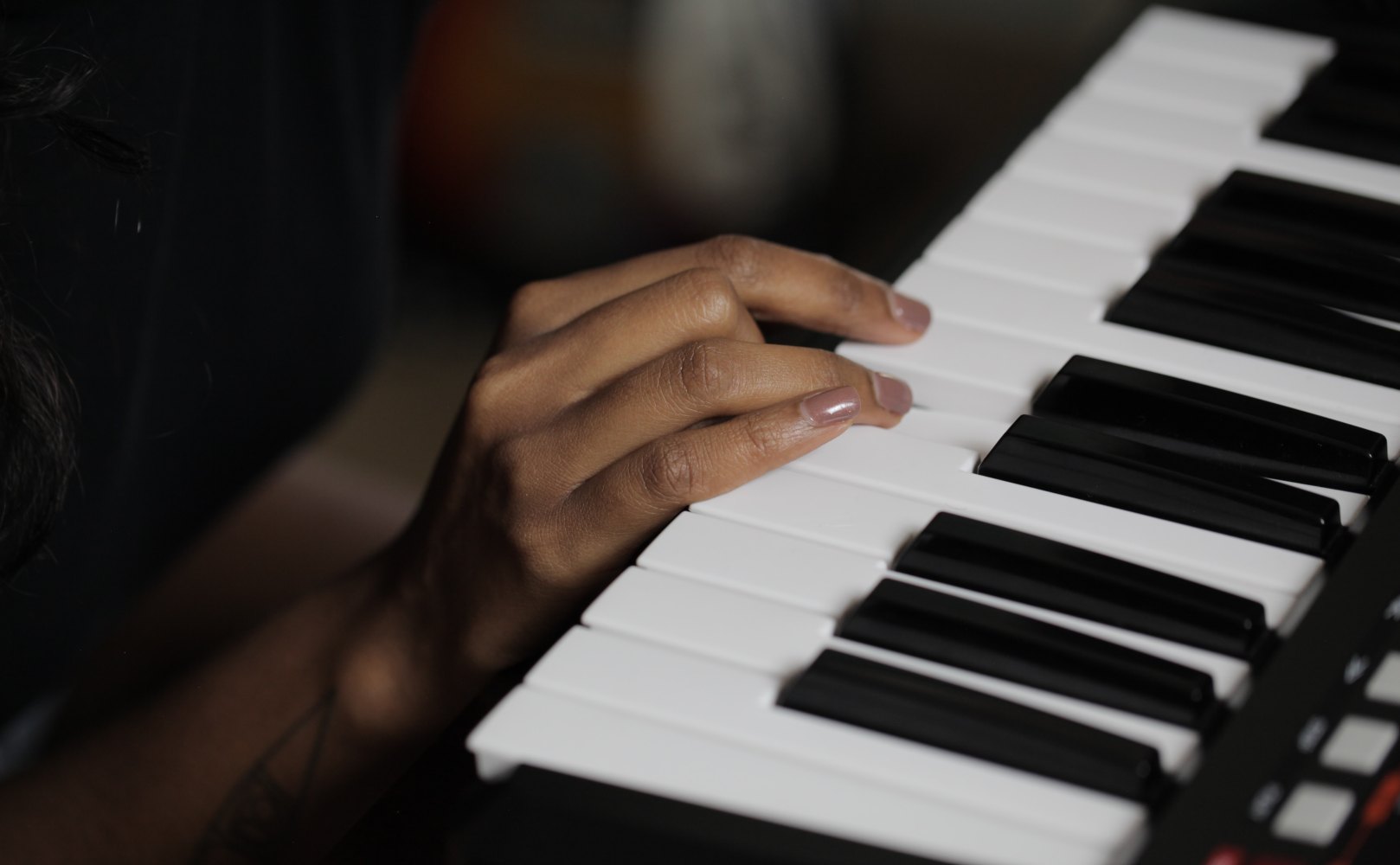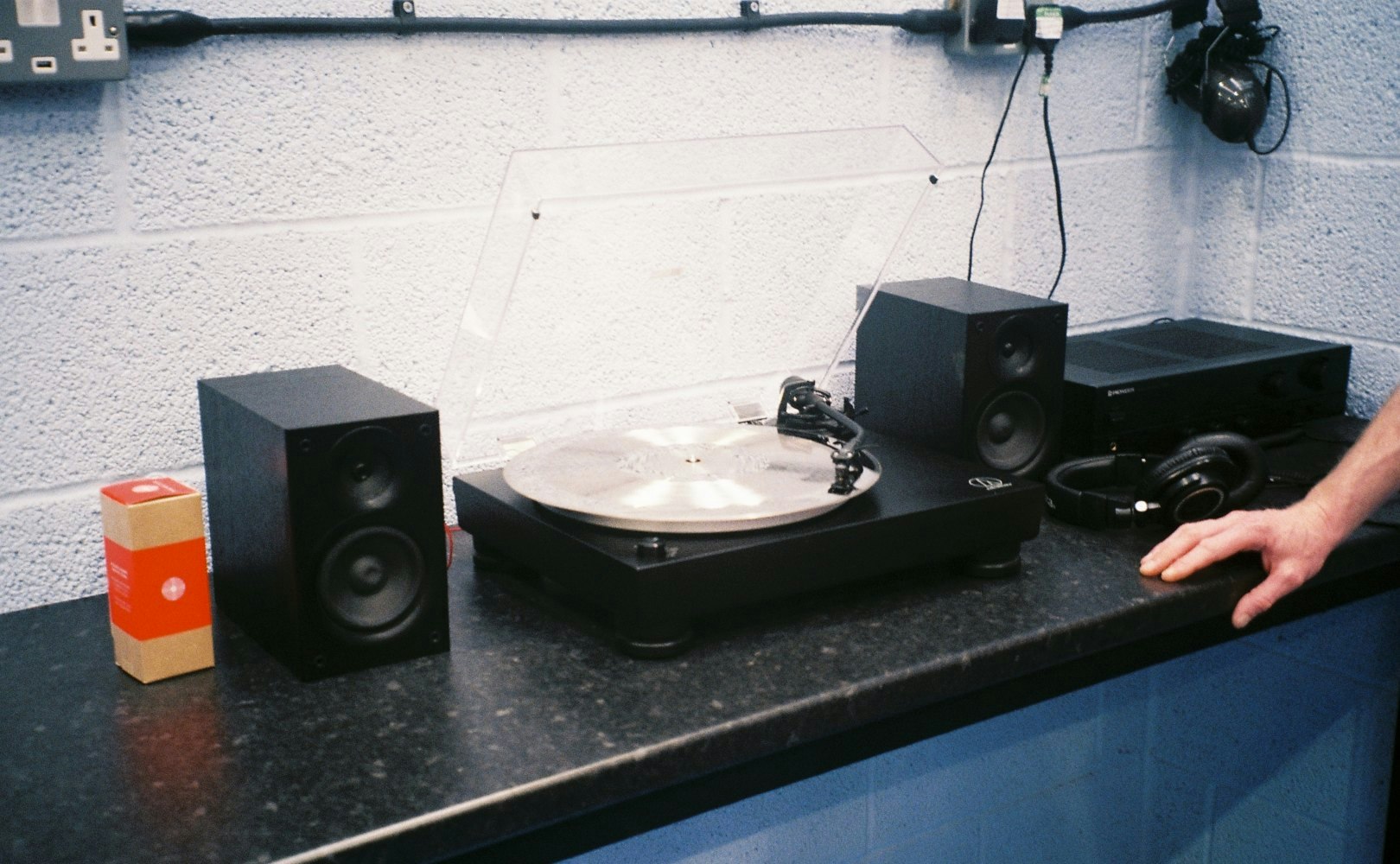
■ Discover New Music
A recent survey conducted by Pirate found that 53% of the artists that participated would rather self release than sign with a traditional label.
What is attracting more and more artists to actively prefer retaining independence over their music? In a constantly shifting industry climate, Paul Hanford weighs up the pros and cons of both routes.

It feels like a strange dream now that for a large part of the nineties, an artist as seemingly infallible and important to the evolution of popular culture as Prince used a symbol instead of his name. But for most of this decade, in a seven year long attempt to wrestle artistic control from the grip of Warner Records, the legendary innovator, at the height of his commercial powers, dropped his name, released cryptic statements and at one point appeared on TV with “SLAVE” written across his face.
Then, rewinding back further to the mid-seventies, there’s the myth that Lou Reed’s double album of feedback experimentation, Metal Machine Music, an album that has grown into a certain kind of notorious reverence, was an attempt by the legendarily idiosyncratic singer/songwriter to release something so unlistenable that his record label would drop him and he’d be free of their constraints.
The historical relationship between artists and the labels that release their music has been littered with examples of disharmony, of bitter feuds between artistic freedom and the interests of business.
For every symbiotic love story between an artist and a truly empathetic music-driven label, like the 40+ year marriage between Depeche Mode and Mute Records, there are endless examples of where things go wrong.
Recent allegations made by artists ranging from FKA Twigs over her label hassling her to supply endless TikToks to that of underground techno champion Nene H over shoddy label treatment is just the latest incarnation of the delicate relationship between business interests and artistic integrity. The difference is now, artists have choices of how to release their music.
Pirate recently sent a survey out and found that 53% of Pirate artists prefer releasing independently than with a label.
We can only speculate how the late, great Prince and Lou, if they were young now, would have chosen to navigate releasing music in 2022. It’s not a stretch to imagine the endlessly prolific Prince dropping unexpected new anthologies without warning on Bandcamp Fridays. Or Lou, savvy and part of the New York art world, releasing work as NFTs and subsequently making a mint from crypto.
Pirate’s survey found that overwhelmingly, most artists cited ‘freedom’ and ‘control’ as their reasons for preferring to remain independent. This sentiment was echoed in a conversation I had with Berlin based singer/songwriter Freddie Dickson:
“Ever since I started self releasing, I felt that I grew creatively.”
Freddie started out with a development deal from a major label before hitting his stride with a string of moody, atmospheric self-releases and a sense of self-confidence grown out of developing his own team:
“With self releasing, it was suddenly down to me to find the photographers, filmmakers, graphic designers etc that would fit my project.”
Although Freddie is philosophical about the pros and cons of both working with labels as well as being independent, it’s this sense of freedom over making decisions that acts as an enabler:
“When I was with a label, I had PR backing, so I had quite a lot of exposure, however ultimately I never felt totally in control of the direction my music was heading or how it was being presented.
Nowadays, as a fully independent artist, I take great comfort in knowing that both sonically and visually I am in control. There's less budget but i'm ultimately happier knowing that I’m portraying the truest version of myself without any interference.”
One of the issues that Freddie explains to me he’s found difficult with self-releasing is the sheer amount of work that goes in to managing all aspects of a career and the plethora of different roles that need attending.
From arranging recording sessions to managing social media campaigns, and most importantly within this, he still has to find time and inspiration to write material as well as hold down a day-job. This is when having that team around you of trusted people really counts:
“My favourite part about it is being able to work with friends who I know are in it for the right reasons.”

Not everybody has the ability to rally their own team or to multitask. After all, isn’t this the point of a label? In an effect, what Freddie has nurtured in all but name is his own boutique label made up of a team of friends. When modern labels work, particularly on a boutique scale, it’s when the relationship with the artist is paramount.
“I personally thrive off being around artists and their creativity, and I like to be a natural extension of that in supporting and promoting creative freedom.”
This comes from Adam Heron, label manager of Gondwana Records, and founder of the new indie label Tonal Union which was born out of a long running passion for wanting to find a home for artists that he’s already developed connections with. Adam is very much part of a breed of industry good guys and for him, he can see the pros and cons of both releasing with a label and going it independently:
“Some artists might prefer the entrepreneurial and DIY approach, whilst others might favour the support of a professional and experienced team around them.”
And for Adam, balancing both his own and the best interests of artists signed to his label isn't so different to other personal relationships:
“If you can create an honest and genuine connection with an artist, being a part of their world can often become seamless and you evolve and grow together as well as inspire truly wonderful things.
I apply the same methods to my daily life with family, friends and colleagues in promoting integrity, respect, compassion and empathy. That is why often the artists I work with often become good friends and often also feel like family.”
Adam is also clear that when it comes to working with a label, it has to be worth it for the artist:
“Labels can provide an established home and platform for an artist that can serve to support multiple releases, offer vital connections to touring, sync and listening opportunities and beyond.
I think it’s important that both models continue to inspire creativity so that labels also offer a progressive and beneficial alternative to self releasing. Going it alone can be very bold and rewarding but it can also be highly stressful and daunting.”
A label like Tonal Union has a symbiotic relationship with the artists it works with, very different from that of a recent experience that befell Berlin based techno producer Nene H. In May, she took to Instagram to voice her experiences of being ghosted by the label Possession, and this was after her record release with the French label sold out. She wrote:
“The fact that a European person of privilege in the middle of the pandemic, where I had needed the money, earning thousands of euros from my own music, and still not paying me, not to mention they sold out all the records without sending me even one copy”.
I messaged Possession to see if they’d be interested to put their side of the story across, but they never replied.

Nene H's post illuminates the wider context of money. Up until now, it has been assumed the only way to really make money from releases is by working with a label. It’s 2022 and we can all assume you’ll never get a penny from Spotify, yet new payment models are emerging.
In her post, Nene H goes on to direct artists, producers and DJs to use the recently launched software Aslice, a disruptor that is attempting to solve another popular concern that the Pirate survey found: royalties. Many artists surveyed felt it was worth retaining 100%.
Launched by techno mainstay DVS1, Aslice’s mission is to re-address disparities within dance culture. The software offers a financial bridge to electronic music producers who frequently miss out on both the big paychecks of top-tier DJs and royalties from collection agencies (PROs). Aslice enables DJs to effortlessly capture their playlist data and voluntarily offer a small portion of their gig fee (the amount is variable, but 5% is suggested) directly to the producers of the tracks they play.
The existing performing rights societies, such as PRS in the UK and GEMA in Germany frequently fail to distribute royalties towards smaller niche artists in favour of distributing unclaimed for plays to the top selling artists at any given moment.
Aslice arrives into a climate where we’ve long assumed that, like PROs, artists are unlikely to be able to make a living off major streaming platforms such a Spotify. Can the uncertain futures of crypto and NFTs wield a viable alternative?
The interdisciplinary artist, Portrait XO, whose songwriting and production incorporate AI techniques, recently started exploring NFTs as a way to distribute music, make an income and explore potential communities of listeners:
“NFTs are an opportunity for artists to get support early on in their projects.”
Portrait XO points out that the rise in NFTs coincides with a cultural shift towards fans wanting to support artists financially, rather than consume their art for free:
“The most interesting aspect particularly for music artists is that NFTs have changed the paradigm in the sense of how music is released. There’s been a really big cultural shift where people want to support artists in a much bigger way financially.”
She cites the Web 3.0 platform sound.xyz, explaining how it works as such:
“They do listening parties and people can support an artist by buying a seat. Artists coming out of this are getting support in numbers like €35,000.”
And although she doesn’t see NFTs taking over from traditional labels, she recently got acquainted with a glimpse of the potential, doing an NFT drop on a marketplace that sold out in a day and a half:
“I didn’t know how to price it, I think most of us are still feeling this out, I let them decide the price and format, and we sold 12 editions for 40 euros, so that was a surprise, especially for myself being an artist that doesn’t necessarily have the biggest fanbase.”
Like Adam, Portrait XO remains philosophical of there being both room for record labels as well as self-releasing, in her case utilising Crypto, she explains:
“I don’t necessarily see an NFT record label taking over a traditional label, I think it's more that there is this financial support opportunity happening in Web 3 that are very different to how artists have been supported traditionally.”
It could well be that more and more artists are choosing to self release because with NFTs and platforms like Aslice, the options of artists earning through self releasing are increasing. Simultaniously, the allure of large advances as well as the security of having a label’s power behind an artist to reach as wide as reachable an audience has faded into a pre-digital ether.
We’re now in a climate where artists are finding tools to assert their own independence through a variety of releasing systems or alternately working with labels that run as much out of passion as with business in mind.
Feeling inspired? Book a DJ studio, recording studio or rehearsal studios in the UK, Ireland, US or Germany with Pirate
